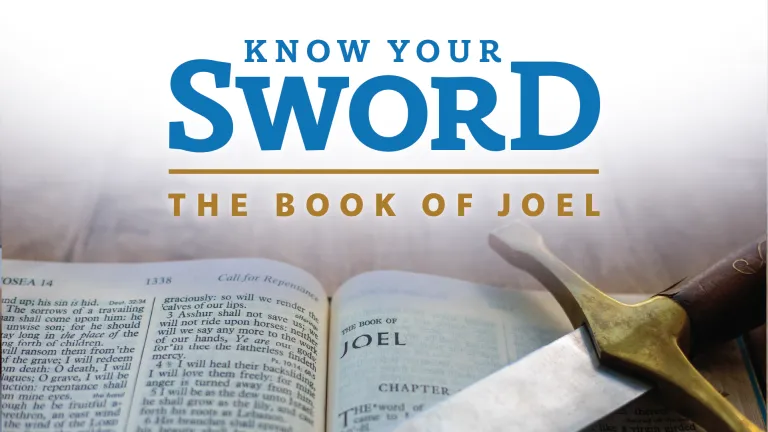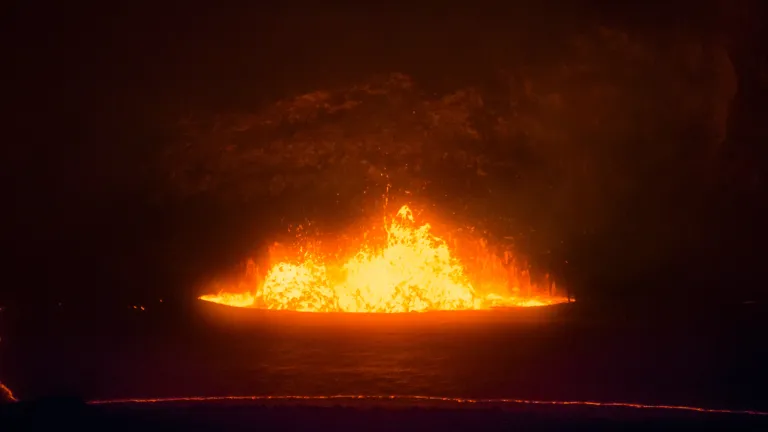Joel Part 04

Joel 2:13 tells us to “rend your heart, and not your garments.” Tearing one’s clothes was a common sign of mourning or distress at that time, but God wants our minds and hearts.
In Joel 2:3 we see that whether it is literal locusts or a human army, it wreaks complete destruction wherever it goes! We know today a human army can absolutely do this. “Scorched earth” policies have been a part of war for millennia. We can see examples of this in the news today. Look up Gaza or Ukraine “before and after photos.” You will see the destruction that man can inflict on buildings, landscape and each other.
Joel 2:4–5 describes an army with “the appearance of horses.” This could be the same army as discussed in Revelation 9:1–11. Revelation 9:16–19 also mentions a 200-million-man army, potentially on horseback. Either or both could be a description of modern military equipment—using the best description that a man from that time period could manage.
Joel 2:6 appears to describe mental and emotional pain at seeing the coming fate. People are distraught at the destruction that is imminent. Joel 2:7–9 shows that some scholars work hard to attribute this to actual locusts, who do seem to move in swarms without hindering one another, and missiles (as “sword” should be translated) will pass through without hindering the swarm. But this seems much more to describe the “mighty men” of an army. (Note Psalm 18:29, “For by You I can run against a troop, by my God I can leap over a wall.”) This could possibly be Nebuchadnezzar’s Babylonian army, or the end-time “King of the North,” but it also seems to fit Revelation 9 and possibly the 200-million-man army. Many biblical prophesies have multiple fulfillments, as they describe patterns that repeat over time.
In verse 8 the term cut down in Hebrew is batsa, meaning broken off or stopped, and does not mean that those in this army are invulnerable to any harm. These verses may be describing activity by actual locusts as they are almost impossible to keep out of a house, but most likely this typifies a powerful army overrunning a city. King David’s “Mighty Men,” described in 2 Samuel 23:8–39, shows what can be done!
Joel 2:10 speaks of an earthquake, and a darkened sun, moon and stars. The language parallels Revelation 6:12 (the sixth seal) depicting a great earthquake, the sun turning black and the moon turning to blood. These again are all references to the Day of the LORD. Matthew 24:29 adds that after the tribulation, the sun will be darkened and the moon will not appear. Revelation 8:12 (the four trumpet) shows a third of the sun, a third of the moon and a third of the stars dimmed. And Revelation 16:10 (the fifth of seven last plagues) describes complete darkness, meaning all light from all heavenly sources will be blocked—certainly during the Day of the LORD.
When will the earth quake and sun and moon be darkened? It seems to happen more than once during the end-time—and it is mentioned more than once in Joel (see 2:31). Darkness was also a plague in Egypt. Only God has power over the sun, moon and stars, and He makes His power evident.
Joel 2:11 reminds us: this is God’s doing and His will! With this knowledge, Joel instructs us to “turn to [the Lord] with all your heart!” (Joel 2:12). Fasting is one way to do this as many examples in the Bible show:
- 2 Samuel 12:16, “David . . . pleaded with God . . . [and] fasted.”
- Ezra 8:23, “we fasted and entreated our God.”
- Esther 4:16, “fast for me; neither eat nor drink for three days, night or day.”
- Matthew 9:15, “. . . and then they will fast”
Joel 2:13 tells us to “rend your heart, and not your garments.” Tearing one’s clothes was a common sign of mourning or distress at that time, but God wants our minds and hearts.
Psalm 51:17 says,
“The sacrifices of God are a broken spirit, a broken and a contrite heart—these, O God, You will not despise.”
To return to God means true repentance! It is God’s nature to forgive—even at that late a time.
Psalm 145:8 reminds us that,
“The LORD is gracious and full of compassion, slow to anger and great in mercy.”
To relent in Hebrew is, nacham, meaning pity, regret or comfort—God offers deliverance.
Jeremiah 18:8 says,
“If that nation against whom I have spoken turns from its evil, I will relent of the disaster that I thought to bring upon it.”
Of the people in Nineveh, Jonah 3:10 says,
“Then God saw their works, that they turned from their evil way; and God relented from the disaster that He had said He would bring upon them, and He did not do it.”
If we repent, then God will relent.
Minor Prophets class is taught at ABC by Dr. Frank Dunkle.
UYA Team | uya@ucg.org
United Young Adults (UYA) primarily serves the 18–32-year age group for the United Church of God. There are three main areas of contribution to the lives of the young adults: Promoting Spiritual Growth, Developing Meaningful Relationships and Making the Most of Your Talents. The Know Your Sword series is a daily expository message introducing God’s Word from a trusted perspective.


